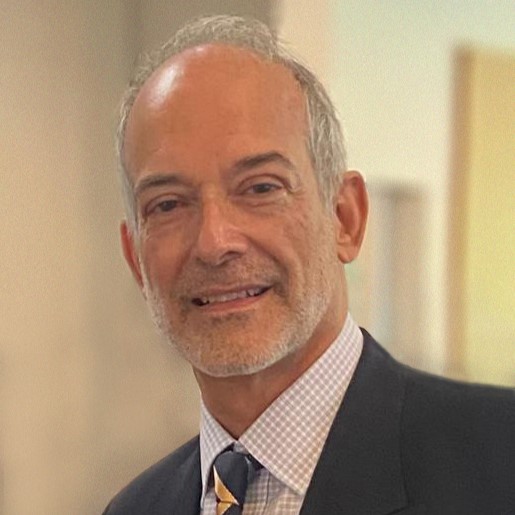
About AGI
The American-German Institute is a center for policy research and scholarship dedicated to the most important political, economic, and security issues confronting Germany and the United States in the global arena. AGI anticipates challenges, proposes solutions, and bolsters the German-American partnership.
Who We Are, What We Do
The American-German Institute (AGI) in Washington, DC, is the only think tank focused exclusively on the most pressing issues at stake for Germany and the United States. Affiliated with Johns Hopkins University (JHU), the Institute possesses in-depth policy and academic expertise and an extensive network on both sides of the Atlantic. AGI collaborates with policymakers, corporate leaders, and scholars to deliver in-depth, actionable analysis and fresh ideas that help anticipate trends, manage risk, and shape policy choices.
Our work addresses the top economic, foreign, security, domestic, and social policy issues affecting the United States, Germany, and the broader transatlantic relationship. This includes the trade and investment relationship, German-American defense and security ties and the NATO alliance, the impact of demographic change and diversity in both countries, common approaches to the challenges surrounding China, and issues of Holocaust remembrance and reconciliation. We anticipate transatlantic developments and explain how they will affect Germany, the United States, and the world.
AGI has always had its finger on the pulse as a renowned forum for an open and indeed critical, but always constructive and thus productive, exchange of views. That makes it a cornerstone of the wide bridge between our countries. I am very grateful for this.
– Angela Merkel, Former Chancellor of the Federal Republic of Germany
Building a Stronger German-American Partnership
President | Board of Trustees | Team
Geoeconomics Program
The AGI Geoeconomics Program promotes original thinking and debate on U.S., German, and EU global economic strategy with a focus on ways that trade, financial, climate, and technology policies can advance their shared interests, prosperity, and values.
Directed by Mr. Peter Rashish
Featured Topics: Trade & Investment | Global Economic Order | Digital Policy | Domestic Economics | China
Society, Culture & Politics Program
The AGI Society, Culture & Politics Program focuses on crucial topics within the German-American dialogue, including: demographic change, migration/integration, and aging societies; electoral politics at the national, state, and European levels, and comparative analysis of Germany and the United States; diversity within Germany, Europe, and the United States; the politics of collective memory and identity, Holocaust remembrance and reconciliation, and shifting conceptions of national identity that shape perspectives and policy responses.
Directed by Dr. Eric Langenbacher
Featured Topics: Immigration & Integration | Demographic Change | Domestic Politics | Politics & Elections | European Integration | Historical Memory
Foreign & Security Policy Program
The AGI Foreign & Security Policy Program addresses German security policy, the foreign policy cooperation between the U.S. and Germany, and the transatlantic defense relationship.
Directed by Mr. Jeff Rathke
Featured Topics: German Foreign Policy | NATO | Cybersecurity | Terrorism & Counterterrorism
Recent AGI News
The American-German Institute and Johns Hopkins
AGI was founded in 1983 as the American Institute for Contemporary German Studies by Dr. Steven Muller, then President of Johns Hopkins University, and Dr. Robert Gerald (Gerry) Livingston, the Institute’s first Executive Director. Since its founding, AGI has enjoyed an affiliation with JHU. The University is renowned for its research and has long-standing relationships with German academic institutions. While the Institute has its own Board of Trustees and raises its own funds, Johns Hopkins University continues to be an important resource for the Institute, its staff, and its fellows. AGI is proud to be affiliated with this world-class university and support its motto to provide “Knowledge for the World.”
AGI is the preeminent thought leader on the critical policy issues affecting the United States, Germany and the rest of the world. It has been such a privilege to be part of an organization that, especially in today’s uncertain political climate, remains to be a neutral voice for in depth analysis and actionable intelligence that leads to significant policy impact on both sides of the Atlantic.
– Jacques Brand, Senior Partner, PJT Partners and AGI Chairman Emeritus
History
AGI was founded as the American Institute for Contemporary German Studies (AICGS) in 1983 with the idea of establishing an institute at Johns Hopkins University that would help American policymakers, corporate executives, and the media better understand both the Federal Republic of Germany and the German Democratic Republic, as well as their pivotal role in the transatlantic alliance. It was the only think tank to do so.

The Institute’s two founders—Steven Muller, then President of Johns Hopkins, and Robert Gerald Livingston—were determined that the Institute would be forward looking in its research and programming. The new organization would seek to explain postwar contemporary Germany—a democratic state with a market economy, a founding and influential member of the European Community, a pivotal ally in NATO, and an important partner for the United States. The Institute’s programs would examine the changing dynamics of German economics, politics, and society. In looking at both Germanys, in a certain sense, AGI anticipated unification of the two German states.

The fall of the Berlin Wall on November 9, 1989, signaled the end of the Cold War and opened up the possibility for German unification, which occurred formally on October 3, 1990. The Institute’s programmatic focus now embraced a broader agenda that increasingly considered the German-American partnership in the context of transatlantic and global affairs. It was also during this period that the Institute’s core research structure fully developed into the current tri-part model of Foreign & Security Policy; Geoeconomics; and Society, Culture & Politics.
AGI is proud to celebrate Dr. Muller’s forward-looking, innovative legacy with the Muller New Initiatives Fund.
Becoming the American-German Institute
Our original name “American Institute for Contemporary German Studies” was styled to reflect the mission of the new, German-focused organization. The founders wanted the new research institute to deepen American knowledge of current German developments and contribute to American policy analysis of both Germanys. The Institute was to be a venue for studies of Germany—a place of scholarship and exchange to provide resources to the academic, policy, and business communities. The decision to study both the GDR and Federal Republic was groundbreaking and future-oriented and made AICGS indispensable for policymakers as the peaceful revolution of 1989/90 took shape in East Germany and after reunification; no one knew Europe’s new powerhouse better. For four decades, the Institute has been a resource for increasing understanding and deepening networks between Germany, Europe, and the United States.
Over the years, the Institute’s leadership had considered changing the name, especially as the mission refocused on the changing transatlantic relationship and the shifting global environment. As AICGS approached its 40th anniversary, the Institute’s leadership felt the time was right to give it a new, streamlined brand. The new name reflects the centrality of the study of Germany and the United States to our work. This is the heart of what the Institute has been for the past 40 years and rededicates us to our mission: bolstering the German-American partnership. The American-German Institute will continue to honor the future-oriented agenda established by Steven Muller and Gerry Livingston for the next 40 years and beyond.
Funding

The American-German Institute is the trade name of the American Institute for Contemporary German Studies. It is a nonpartisan, non-profit organization with 501(c)(3) charitable status. Its EIN is 52-1309525.
AGI is supported by generous contributions from individuals and corporations in the United States, Germany, and throughout the world. It also regularly receives grants from private foundations and governments to conduct its research agenda.
Financial Information
Form 990s
- FORM 990 – Return of Organization Exempt From Income Tax
For Fiscal Year Ended June 30, 2024 (PDF) - FORM 990 – Return of Organization Exempt From Income Tax
For Fiscal Year Ended June 30, 2023 (PDF) - FORM 990 – Return of Organization Exempt From Income Tax
For Fiscal Year Ended June 30, 2022 (PDF) - FORM 990 – Return of Organization Exempt From Income Tax
For Fiscal Year Ended June 30, 2021 (PDF) - FORM 990 – Return of Organization Exempt From Income Tax
For Fiscal Year Ended June 30, 2020 (PDF) - FORM 990 – Return of Organization Exempt From Income Tax
For Fiscal Year Ended June 30, 2019 (PDF)) - FORM 990 – Return of Organization Exempt From Income Tax
For Fiscal Year Ended June 30, 2018 (PDF) - FORM 990 – Return of Organization Exempt From Income Tax
For Fiscal Year Ended June 30, 2017 (PDF)
Audited Statements
- Results of Financial Audit for Fiscal Year 2024 (PDF)
- Results of Financial Audit for Fiscal Year 2023 (PDF)
- Results of Financial Audit for Fiscal Year 2022 (PDF)
- Results of Financial Audit for Fiscal Year 2021 (PDF)
- Results of Financial Audit for Fiscal Year 2020 (PDF)
- Results of Financial Audit for Fiscal Year 2019 (PDF)
- Results of Financial Audit for Fiscal Year 2018 (PDF)
- Results of Financial Audit for Fiscal Year 2017 (PDF)
Governance
Documents and information submitted to the State of Maryland under the Maryland Charitable Solicitations Act are available from the Office of the Secretary of State for the cost of copying and postage.












